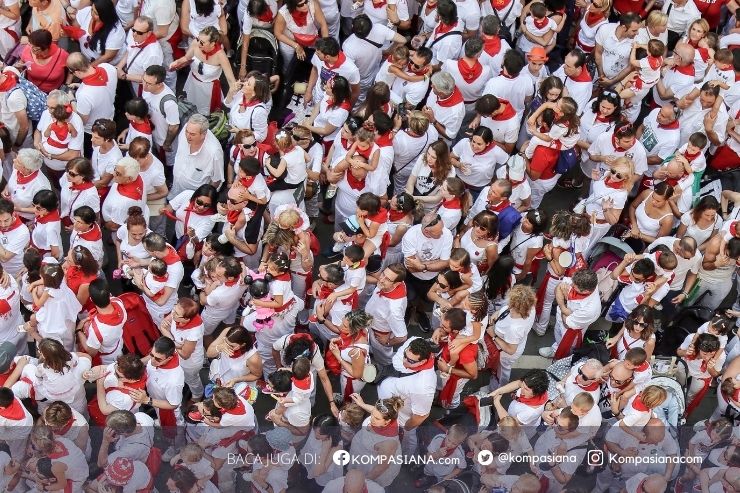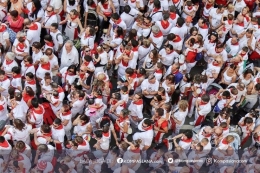The change of the world order following globalization promotes a fast immense exchange of information accompanied with a significant shift of values in the world societies broadly. The shift involves supporting factors, such as religions, ethnicity, races, culture, economy, and politic which eventually trigger potent conflicts among the world societies. To put a response on this issue requires open minded behaviour through intensive communication among the world's leaders, religions preachers, and the societies in grassroots.
Unfortunately, at the same time a question of why human rights values decline as a consequence of the potent conflicts mentioned above emerges around the globe. Particularly in Indonesia, the question is on an intense debate, noticing that most potent conflicts with the above-mentioned factors have profoundly involved Indonesian societies in grassroots provoked by political actors and religions preachers.
Julien Hoffmann' s writing "We have no right to force our religion on others" citated by Wendy Brown underlines that tolerance is an integral part of the modern world order. It is furthermore elaborated as a significant part of human history development as well as national civilization across the globe. It is indicated by the appearance of law-based regulations, democracy, and freedom as well as independence.
Defined as a willingness to accept differences of other ways of thinking, behaviours, and values of beliefs despite personal disapprovals towards those differences, tolerance is a value to improve wise open-minded ways of thinking and acting due to facing globalization in a multi-dimension country. Indonesia, as an example for this issue, has maintained tolerance values through Pancasila as a part of universal values for the state's societies.
Furthermore, Pancasila is an improvement of deliberation and consensus concepts in terms of an institutional development in the side of organizations and a managerial development in the state's governance implementations according to Prof Dr. Pyofr Hessling of Erasmus Rotterdam University.
The values of Pancasila are supposed to be generated to Indonesian future generations, mostly through education so as to build the national and self personality while maintaining open-minded and respectful attitudes on account of emerging differences from their environment and a bigger scale one. Pancasila is the life principle embracing different interests which rely on religions, races, and ethnicity as well as the formation of national civilization to promote the state's diversity values.
In purpose to reduce potent conflicts due to the differences through the use of Pancasila values, the Indonesian government along with the societies and political actors should develop their deep awareness of minority groups existence in their proven vulnerability to experience intolerance and discrimnating practIces.
Their awareness will encourage a political interest to represent minority groups, meanwhile in a term of identity politics, perspectives of tolerance can be applied in order to accommodate various diverse preferences and they can be represented through the government's public policies in order to reduce the enforcing of any majority's interest towards other parts of the societies' differences.
The Indonesian government along with their apparatus as well as the state's laws and regulations must be able to develop perspectives of tolerance towards diverse circumstances in the country so as to embrace minorities yet marginalized groups and this is what is called Indonesia with tolerance as a part of national civilization for now and future period.
Baca konten-konten menarik Kompasiana langsung dari smartphone kamu. Follow channel WhatsApp Kompasiana sekarang di sini: https://whatsapp.com/channel/0029VaYjYaL4Spk7WflFYJ2H







